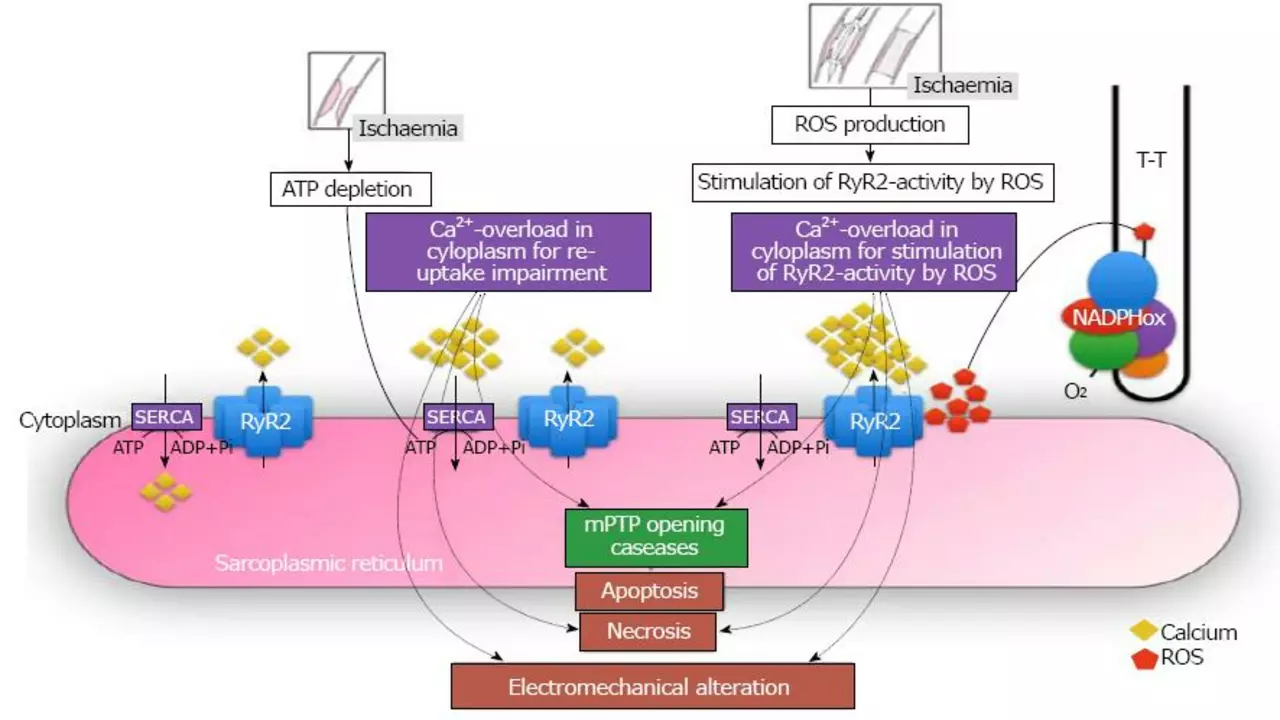
Understanding Reperfusion Injury
Before we delve into the role of antioxidants in preventing reperfusion injury, it's crucial that we understand what reperfusion injury is. Simply put, reperfusion injury is tissue damage caused when blood supply returns to the tissue after a period of ischemia or lack of oxygen. The absence of oxygen and nutrients from blood during the ischemic period creates a condition in which the restoration of circulation results in inflammation and oxidative damage through the induction of oxidative stress rather than restoration of normal function.
The Importance of Antioxidants
Antioxidants are molecules that can donate an electron to a free radical without making themselves unstable. This ability makes them perfect for stabilizing free radicals and ending the chain reaction before vital molecules are damaged. They play a vital role in maintaining the body's overall health, including the prevention of diseases such as cancer, heart disease, diabetes, and more. Notably, they have been identified to play a significant role in the prevention of reperfusion injury.
Antioxidants and Reperfusion Injury: The Connection
The connection between antioxidants and reperfusion injury lies in the process of oxidative stress. During reperfusion, the sudden influx of oxygen into oxygen-deprived cells leads to a rapid increase in the production of reactive oxygen species (ROS), causing oxidative stress. Antioxidants come into play as they neutralize these ROS, thereby reducing the oxidative stress and the resultant damage.
The Role of Vitamin E in Preventing Reperfusion Injury
Vitamin E, a fat-soluble antioxidant, has been shown to have protective effects against reperfusion injury. It works by scavenging free radicals that cause oxidative damage during reperfusion. By including Vitamin E in our diet, we can ensure that sufficient antioxidants are available in our body to counteract the effects of free radicals generated during reperfusion.
The Impact of Vitamin C on Reperfusion Injury
Another crucial antioxidant in the prevention of reperfusion injury is Vitamin C. This water-soluble antioxidant has been identified to reduce the damaging effects of ROS by neutralizing them. In addition, Vitamin C also aids in regenerating Vitamin E, which further enhances the prevention of reperfusion injury.
Other Antioxidants and Their Role in Preventing Reperfusion Injury
Other antioxidants such as glutathione, selenium, carotenoids, and flavonoids also play a significant role in preventing reperfusion injury. They all function in a similar manner, either directly neutralizing free radicals or boosting the body's antioxidant defenses, thereby reducing oxidative stress and preventing reperfusion injury.
Increasing Antioxidant Intake: Diet and Supplements
Given the importance of antioxidants in preventing reperfusion injury, it's essential to ensure that our diet is rich in antioxidants. Foods such as berries, green tea, dark chocolate, and nuts are excellent sources of antioxidants. In addition, antioxidant supplements are also available for those who can't get enough antioxidants from their diet.
Conclusion: The Crucial Role of Antioxidants in Preventing Reperfusion Injury
In conclusion, antioxidants play an indispensable role in preventing reperfusion injury. By neutralizing free radicals and reducing oxidative stress, they help prevent the tissue damage associated with reperfusion. Thus, maintaining a diet rich in antioxidants or taking antioxidant supplements is crucial for preventing reperfusion injury. Remember, prevention is always better than cure!